I don’t know that acting is something I generally want to do. But sometimes you do get something where your every waking moment will become about that. That’s what it has to be for me.
Photographer: Matthew Cylinder
Stylist: Sophie Felder
Groomer: Katie Bacon
Global Brand Ambassador: Kee Chang
If the name Owen Teague doesn’t immediately ring a bell, that’s in part by his design. A striking presence commanding the screen, his characterizations are tightly coiled and emotionally exacting, yet it’s the work of a shape-shifting chameleon who also prefers to fly under the radar off-screen.
Teague, now 26, has amassed an impressive gallery of characters over the years. If it’s true that actors are as good as their range, consider his leading role in last year’s Kingdom of the Planet of the Apes. He turned in a spectacular motion-capture performance playing a chimpanzee. On the human spectrum, he is particularly good in To Lesley—always offering a suggestion of both love and mistrust, playing the long-suffering son to Andrea Riseborough’s alcoholic, parasitic mother.
Currently, Teague stars in the coming-of-age dramedy Griffin in Summer. It’s a role that curiously falls somewhere in-between the aforementioned ones. Teague plays Brad, a defeated performance artist who recently moved back home to a lifeless suburb to work as a handyman. He’s often in a haze, drinking himself to oblivion. Then, an aspiring playwright teenager, Griffin (Everett Blunck), shows up and takes a keen interest in Brad, seeing in him a performer with untapped potential.
Griffin in Summer picked up the Best U.S. Narrative Feature and Best Screenplay awards at the 2024 Tribeca Festival, as well as the Special Jury Mention prize for director Nicolas Colia.
Anthem recently connected with Teague for an in-depth conversation, and a photoshoot in NYC.
Griffin in Summer is now playing in select theaters.
Hi, Owen. It’s great to see you!
Yeah, you, too!
Where are you living these days? Are you in Brooklyn?
No, I’m in Manhattan. But I used to live in Brooklyn.
You had an audition on Tuesday, didn’t you? How did that go?
I think it went well. It was an especially traumatic scene. You know, I do everything by the window ‘cause of light, and my only blank background is by the window. I caught my neighbor, this poor old woman across the street, watching me and panicking. I was like, “No, we’re good! I’m fine! Don’t worry!” [laughs] “I’m not actually getting killed over here!”
That’s hilarious. That’s an actor’s dilemma, isn’t it?
Yeah. I’m always doing scenes like that. Man, my neighbors must think I’m crazy…
Apart from getting to scare your neighbors like that, do you enjoy auditions? And not only are you auditioning, you’re often made to do it via Zoom. There are also self-tapes, which has become such a standard now. We’re just never going back to those pre-Covid days.
Really standard. I’ve never really enjoyed it. I would much rather read with casting directors or directors in-person. With self-tapes, I don’t know if I’m hitting the marks or making the right choices. And then you send them off into the ether. Who knows what happens? Plus, I gotta set up the camera… I’m very lazy. [laughs] Zoom is a little weird, too. I’ve done chemistry reads that way. I’m like, “I don’t even have chemistry with my friends on Zoom!” Asking actors who are meeting for the first time to do a Zoom read, especially for a romantic film, I don’t know how anyone can get an accurate read on whether or not the chemistry’s there. But the in-person stuff is fine. I don’t mind that. I don’t relish it, but sometimes it’s surprising. Sometimes it ends up being really fun. Before Covid, there was the occasional Skype call if the director was in some faraway place and they wanted to set up a meeting. And I remember getting on those calls every so often if I couldn’t get away from high school. If you were gonna do a movie and they wanted to talk to you beforehand, that’s what you would do. But I get it. It makes sense. It made things easier for everybody. Well, not easy for the actors… I think it’s great to be able to do it in-person.
While we’re on the subject of auditions, I’ve been wanting to tell you this: of everything you’ve done—and you’re prolific—I have a deep fondness for To Lesley. I’ve watched that many times. It’s devastating and sad, and moving and life-affirming. My guess is that you didn’t have to audition for that one. You knew Michael [Morris] from the Bloodline days.
First of all, thank you for saying that. It means a lot. I’ve heard more about that movie than anything else I’ve done. Everybody just seems to know someone who’s had to deal with similar circumstances. We all cared a lot about To Lesley, and it was a tough movie to make. And I did know Michael from Bloodline going into it. He executive produced that series and directed a bunch of episodes in the second season. I was really young when I met him, and also Andrea, who first played my mom in Bloodline before To Lesley. I remember feeling a connection with Michael on Bloodline. I respected him. He was always really attentive. Sometimes when you’re a kid starting out on a TV show, you can get kind of lost because these veteran directors will come in as hired guns, going from TV show to TV show like, “Put the camera over here. Put the camera over there. You know what you’re doing, so do it.” Sometimes there’s just not a lot of actual directing going on. Well, not always… But Michael was one director who was really interested in getting to the truth of what these characters were going through. I learned a lot from him. I was 16 at the time. And with Andrea, she was blowing my mind with what she was doing.
Andrea’s never the same, and always right for the role. She’s an incredible chameleon.
Yeah! She’s the Daniel Day-Lewis type, except not method. She just disappears. You don’t even know that it’s her. With Andrea, I also remember being like, “I’m thinking about doing a program at RADA [Royal Academy of Dramatic Art].” She said, “Do it. I went there.” So she was influential in me getting a bit of training. I’d never done any of that stuff before. Anyway, she’s wonderful. I do wonder if I’ve ever talked to the real Andrea… No, I have, during press and stuff. I’m just amazed at how far she goes and transforms. It’s like, “How do you do that?”
We photographed Andrea at Tribeca Festival this year. Again, she was completely different from what I’d remembered. That unexpectedness is what I’ve come to associate with her.
Oh, I know. After working with her twice—and under pretty intense conditions—I still don’t know how she does it. With most actors that I work with, I know exactly how they do it. Andrea is a total mystery to me. I hope that we get to do something together again someday. She’s also lovely and chill. Even when she’s playing these really tortured people, she’s great to be around.
You beat me to that RADA story by the way, because I did know that Andrea had encouraged you to go there. Were you looking to take up anything in particular?
No, I just wanted some classical training ‘cause I hadn’t gone to college or university. I mean, I almost had. It’s something I had thought about. But the way I saw it, if you’re already working in the business, you might as well keep working. Otherwise, you can lose momentum. With RADA, I wanted some kind of a foundation. I felt like I didn’t know anything. I’m still not sure that I know anything. [laughs] But at least there are some technical things I can now lean on. Well, not lean on—to keep in mind, especially on days where things aren’t going super well or if I’m getting too in my own head. There’s a few things I can do to reset. You can arm yourself with general wisdom from people who know a lot about acting. So it was good for that kind of stuff.
If nothing else, you’re no longer curious about classical training. You’re someone who had that fork in the road—deciding between NYU and working with Gary Oldman in LA.
You’ve done your research! That’s crazy…
Well, I think that’s a wild decision for anyone to be making in high school.
I don’t think I was ever really meant for school. Back then, I would’ve felt like I was only going to college because it’s what was expected. College preparedness is a thing. Everything’s about getting good grades and getting ready for your SATs. And then it’s about going to college, getting a job, and making money. That’s the track. As someone who wanted to be an actor, I was still having to weigh what everybody was saying I have to do. But what I ended up realizing was that nobody in this business cares if you went to college. What matters is that you’re a good actor. So why choose school over work and spend all that money? It was prohibitively expensive. It was so ridiculous how much I was gonna be in debt. The education I ended up getting was so much better than what schooling would’ve given me. I know that’s kind of a stuck up thing to say…
No, you made the wise choice. And I’m curious about that Oldman movie now: Mary.
It’s not a good movie. [laughs] It’s like 4% on Rotten Tomatoes. But working with Gary was eye-opening. I got to see how he does it. And as time went on, I got to watch really good directors like Michael and Wes [Ball], who did Kingdom of the Planet of the Apes. I just did a movie with this guy named James Ashcroft [on The Whisper Man] who’s unbelievably talented. You just see how they all work. You see their approach, not only with acting and moviemaking, but in understanding people. I also think there was a lot of pressure about school ‘cause my dad is a chair in a program at the University of South Florida. He’s a professor guy. He’s a college guy. But at the same time, he always had this attitude that, as long as you’re learning stuff and doing interesting things and growing, you can do that in multiple ways. I do find that, a lot of the time, the characters I play lead me to educational experiences that are quite similar to what I might’ve found in a university setting, except I get to design my own curriculum and do my own research. There’s a movie that unfortunately ended up falling apart where I was gonna play a teacher in the 1860s. I had ordered a bunch of American literature from that time period to learn about conduct and manners, and learn how to write letters. Those books are ancient and fascinating. It’s nothing I ever thought I would read about or encounter. So it’s stuff like that.
You did it your own way, and it sounds like your dad was really supportive as well.
As far as I know, he felt good about it. The thing is, he’s also quite artistically inclined. He was involved in theater when I was a kid. He spent years up in the Northeast doing lighting design and directing for plays in community theater. Just for fun, you know? I don’t think he was ever doing it professionally. And my mom was a jazz singer her whole life. So the arts run in my family. There’s definitely a performance side to us. It’s certainly where I got it. So yeah, they were always super supportive. But I think the major fear with my parents about me going into this is what you usually find. They were like, “You’re gonna starve. You should have something to fall back on.” The only reason that didn’t happen with me, that I can afford to have a fairly comfortable life, is ‘cause I won the lottery. I just got lucky. I got a good job when I was still in high school, which was Bloodline. Had that not happened, if Bloodline wasn’t shooting in Florida, I probably would’ve ended up going to school. Maybe I would’ve realized that majoring in acting is a terrible, terrible idea. [laughs] I might have done something else. Maybe I would’ve been a doctor. Who knows? It takes forever to build a career in this—unless you’re lucky. And I’m not even the luckiest of the lucky. I truly happened to be in the right place at the right time.
The only thing I had known about your dad is that he’s a professor of mental health and substance abuse. In Griffin in Summer, you play a drunkard. So do you go to dad with it?
I mean, sometimes I do. With Brad, there’s definitely a substance abuse element, but he’s also not going to therapy. There have been many other characters I’ve gone to him for. I’ve even talked to his colleagues, especially with stuff where you start getting into things like criminology. I’ve played a lot of young, violent people. That kind of research really helps in figuring out the kind of life that would lead you down such paths, especially if the script doesn’t give you a good backstory. Also, I’m just not sure that the psychological approach to characters is all that helpful to me. I definitely find more juice in the physical stuff. Having said that, I do like to journal in character. I know that sounds stupid, but it’s true. It’s often important to me and what I need to convince myself that I’m actually this person. So research does come into play.
Whatever it is you do, it seems immersive enough that roles can leave lasting residue. In your preparation for Kingdom of the Planet of the Apes, you went to “ape school,” and Nicholas [Colia] said you were still part ape when you showed up for Griffin in Summer.
Yeah, that one was very hard to shake. I mean, I try to make it as immersive as I can for myself because, otherwise, I’m too aware of pretending. You’re always pretending, of course, but I find that it ends up being bad when I’m that aware. And I think I’ve just gotten better at being okay with feeling a bit ridiculous. I mean, you have to be okay with that because you are playing pretend. It is sort of a game of dress up. And that’s where the fun comes. For a long time, since I grew up doing theater, it was way easier to buy into it on stage where you don’t question it. But when there’s a camera pointed at your face, it’s like, “Oh, I’m playing pretend.” So in order to forget the camera, I have to give myself extra layers of protection, if that makes any sense.
You’ve said before that you didn’t really relate to Brad. Where do you throw the anchor?
Well, I say that I don’t relate that much to Brad because, my god, I don’t wanna relate to him. He’s an alcoholic basket case. [laughs] But of course, you always relate to who you’re playing in someway, even if they’re terrible. There’s a scene in the movie where he has this very honest moment. He says, “I thought I’d be special.” It’s a really heartbreaking scene. We did that a couple different ways. I think the one that’s in the movie was the warm-up take because what ended up coming out in that scene was just way too intense for what it needed to be. Sometimes things hit too close to home. Sometimes it’s hard to access if it’s too personal for me. It’s scary, you know? But if you can get through whatever little barrier you have up, it can be really amazing. I think that’s what happened with Brad. Brad’s hoping that he’s gonna be this great thing, and then realizes that he’s just another guy. Whether or not that’s true, I think we can all relate to that. Maybe I’m just nuts, but I think anybody who’s creative has that part of them saying, “I’m a genius. I’m going to rule the universe.” At the same time, it’s like, “But I’m also a loser. I can’t do anything.” So I think that part of him was super easy to connect with.
In the end, we don’t know what happens to Brad. All we know is, he has decided to give performance art another go. Is that enough for you to feel at peace with the character?
I don’t know that I really think about the aftermath a lot of the time. Sometimes I do. I do if there might be more down the line, like with Noa in Apes. I do think about where Noa’s gone and what he might be doing all the time because, hopefully, we’ll get to do another film. With Brad, I don’t know… That shoot was funny because the last scene where you see Brad was also our last day of shooting. It was shot somewhat chronologically, give or take a few days. That last day was kind of a heartbreaking scene, so after the end of that day, I was kind of ready to let him go. Brad is either going to get sober and realize that he’s not much of a performance artist, or he’s going to ride the bomb all the way into the ocean. So I was also kind of like, “I’m done.”
I do think we leave him where it’s appropriate: unresolved, but hoping for the best.
Yeah, yeah. There is this very optimistic, hopeful way of looking at Brad. He’s back to doing his art. He’s trying to make his dream happen again. But it’s also like, “Did he really learn anything? Is he just spinning on the same wheel again?” I’m not sure. I don’t really know. I don’t have enough distance. I find that a lot of the time when I play somebody, I can’t actually see it very clearly. Do you ever write something where you don’t know if it’s any good ‘cause you wrote it?
A hundred percent.
It’s that feeling. It’s where you go, “Maybe it’s good. But maybe it’s just me thinking that it’s good. Maybe it’s terrible.” That’s how I feel about my characters a lot of the time: “Is this a good ending form? Maybe. But I don’t really know if I have a clear perspective on it myself.” You know, I do think about where James goes in To Lesley. That’s a lovely thing to think about.
I mean, we root so much for James in To Lesley because life’s been unfair to him. He’s the inverse of Brad in some ways. He’s the one who’s had to put up with a problem drinker. His alcoholic mother abandoned him when he was little. Whereas with Brad, the one instance that we see him interacting with his nice mom, you end up going, “Wow, he’s a little shit!”
[laughs] That’s the best thing anybody’s ever said!
With Brad, you also fill in the missing pieces to get the bigger picture. Like, where’s dad?
Exactly. Where is dad? What could’ve happened that made Brad into such a monster to a lot of people in his life? Griffin in Summer was fun to make because I feel like Nicholas and I are similar in the way we look at artists who take themselves very seriously. I’m also guilty of being like, “I’m an actor. I’m so deep and hard, and I’m so tortured.” But you also have to step back and go, “Dude, relax. What you do for a living is so ridiculous. Chill. Have fun.” So, with Brad, you do have to create some kind of grounded truth you can connect to. But, again, at the same time, there was a part of me—and definitely Nicholas, who wrote it—that’s like, “This guy is absurd.” It was really fun to have the license to play into that absurdity. It was fun to do my homework and my research to create somebody who is believably a person, but also this total joke. It’s like, “We’re gonna laugh at this guy now because he’s such a jerk.” That was fun to do.
I do think it’s important to note that this movie is fun. It’s more comedy than not. We just so happen to be talking a lot about Brad yelling at his mom and his nonstop drinking.
[laughs] It is so funny.
Of all the characters you’ve played, can you single out someone who’s felt closest to you?
Honestly? Noa in Apes.
So not someone—a primate.
He might be a chimpanzee, but I think Noa is more similar to me than anybody else I’ve played. I remember reading the script for Apes and being like, “This dude is me…” He’s always tinkering with something. He’s kind of unsure of himself and doesn’t know what he’s supposed to be yet. Socially, he’s not super on. [laughs] I don’t know… Maybe it’s an inaccurate read of who I am or my self-image is kind of warped. But I definitely felt like there was a lot of overlap.
So is the conversation about doing another Apes movie very much alive?
To be totally honest, I have no idea what’s going on with that. Wes and I have talked about where to go with it. And with Joe [Hartwick Jr.], Wes’ wonderful producer. And with Travis Jeffery and Lydia Peckham, who played Anaya and Soona. We’ve all sort of talked about stuff. Every so often, I’ll see Kevin Durand and we’ll talk about the Proximus influence of it all. But in terms of actual movement, I have no idea. So, hopefully. I really hope it happens. We all want it to.
You’ve put together an impressive gallery of characters over the years. What are you looking to tackle now? Have your priorities changed, or is it always about what resonates?
I think that’s really it. I never really know what I want to do. If there’s something I can really obsess over, that’s what I want to do. Sometimes you read things that you’re really fascinated by. If I can’t stop thinking about it, that’s usually what I want to do. There’s a bit of a compulsion with acting for me. I don’t know that acting is something I generally want to do. I know actors who are like, “Man, gimme anything. As long as I’m on stage, I’m happy.” I don’t really feel that way. If I’m not hooked by something, I’m not gonna do good work. I’ll be like, “Someone else should do it.” But sometimes you do get something where your every waking moment will become about that. That’s what it has to be for me. I can’t be as good as the next guy if it’s not.
Have you always felt comfortable putting yourself out there? What was kid Owen like?
I was super shy as a kid. I was terrified of other people. And my shyness has kind of stuck around. It’s definitely gotten better, but I think I’m still pretty shy. I think I’ve also made a bit of a character for myself to play in everyday life. It’s also why I don’t do social media or anything like that. I mean, I used to. That element of the business just does really bad things to my head. I don’t even like texting. If I’m gonna talk to somebody, I wanna call them because I don’t really know how to do it unless we’re in the same space. The digital age is not something I’m at all comfortable with and that’s made me into a bit of a dinosaur. It was always much easier for me to get on stage and be somebody else, especially if that thing was not even a person. That’s why Apes was great. I was a CGI chimpanzee. I could go wherever I need to go with it. It felt totally safe. And somebody like Brad is often that for me as well, where I can put on a different body and walk in a different way and use my voice in a different way. I can just do what I need to do.
Do you know what I miss, Owen? The mystique of actors before social media.
That’s exactly how I feel about it. If I’m posting online all the time, I’m actually doing a disservice to my own work and to the work of the filmmaker. You just end up going to see me on screen. That’s not what it’s about. I want you to see the character. But I get it, too. It’s like what you have to do now. I’m probably going to drive my publicist crazy by saying this, but—
Let’s hear it.
It’s detrimental to storytelling. As pretentious as that sounds, it’s how I feel. Again, that’s why it’s great to play an ape. Do you know what’s also funny about that, though? Sometimes, people have no idea I did that movie. I mean, which is fine. But people will be like, “So what have you been in?” I’m like, “Did you see the new Apes movie?” They’re like, “Yeah, which one were you?” I’m like, “You know, the main one. With the eagle.” [laughs] So there’s two sides to it.
You’re someone who’s consistently working on great projects. There’s Task coming up. The JonBenet Ramsey mini series. You also have The Ploughmen, which Ed Harris directed—
We haven’t made that one.
You haven’t?
No. We never ended up getting the money to do it. I mean, I don’t know how you don’t give Ed Harris budget… I hope that happens someday. He’s been trying to make it for a long time.
And how long have you been attached to it?
It’s been like three and a half years. But the good news is, I don’t think I’m gonna age out of it. Garrett Hedlund was cast in that role for a long time. I actually just worked with Garrett on the JonBenet series. It was kind of funny meeting the guy I stepped in for. I get compared to him a lot, too. When we showed up on the JonBenet set, I was like, “Oh, I get it. I like you.” [laughs] He’s really nice. Anyway, I hope that we get enough money to do it. It’s a small movie about a cop and an inmate in prison. Trying to get the budget for a movie like that these days is hard.
I’m gonna say this again: you’re in the best film school imaginable. Even before Bloodline, you’d flown out to LA at ten years old to do a screen test for Diary of a Wimpy Kid. So when you work with a new generation of actors coming up in this business, you must wonder about their journeys, too. Of everything you’ve learned, what do you most want to pass on?
Be nice to work with. Be a good person. Be on time. Be professional. Know your stuff. That might sound like lame advice, but the number of people I’ve worked with who have made sets a more difficult place to be—word gets around. I’ve seen some younger actors trying to do the method thing and treat people in crazy ways. Sometimes it works. Sometimes they’re brilliant. But most of the time, it just signals insecurity. Don’t do that. They don’t come back. They don’t get asked back. If you want to keep working and keep getting the opportunity to do the stuff you want to do, people have to wanna work with you. It just doesn’t matter how good you are if you suck to work with. In December, I will have been doing this professionally for twenty years, also counting my theater days. It takes forever to get consistent work and to have a career. It takes a really long time—if it happens at all. And I still feel like any job could be my last, you know? I was just talking to Adam Scott about this recently because he has also been working forever, since he was young playing small roles on great projects, similar to what I’ve gotten to do. He’s a really nice guy. He’s really easy to work with. People wanna work with him. Now, suddenly, after working at it for decades, he’s huge because of Severance. He’s got his due, which is great.
I love that you bring up Adam Scott because, just recently, he talked about how he’d lost a role on Six Feet Under to Michael C. Hall all those years ago. It was devastating to him—enough to make him almost quit acting. Just imagine how many actors quit along the way.
You have to keep going. Now you’re also reminding me of working with Ben Mendelsohn on Bloodline. It was like my first day working with him. I don’t think we even had a scene together. I was like 14 years old. He just showed up next to me, and he’s like, “You really want to do this, huh?” I was like, “I guess.” And he was like, “Well, if there’s nothing else you can do, then do it.” So that’s my real advice: if you can be happy doing anything else, go do that other thing. If there’s literally no way that you can survive without being an actor, then just keep going.
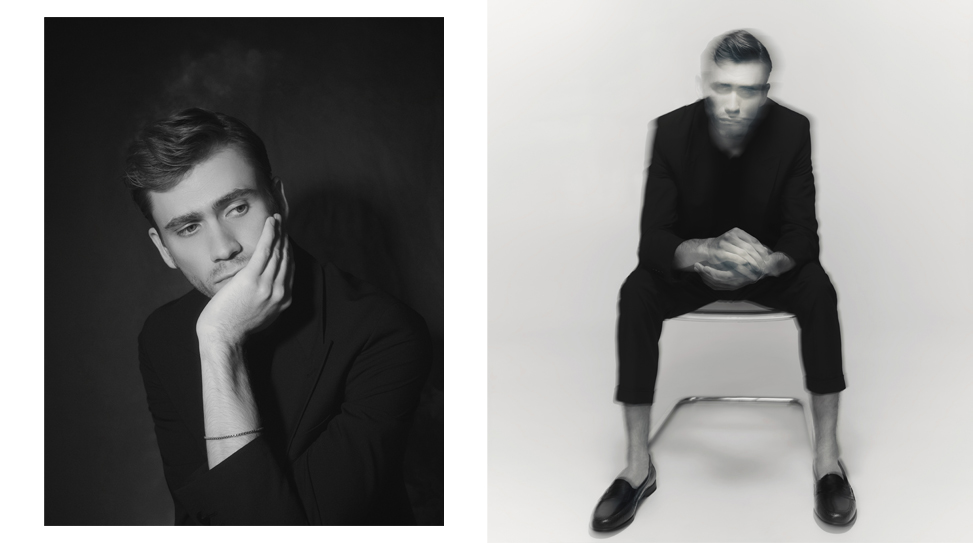

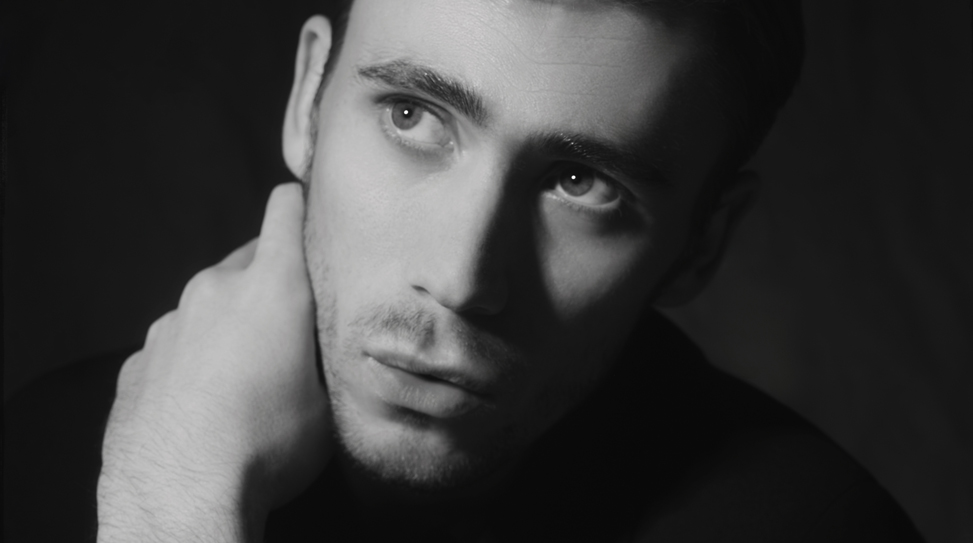
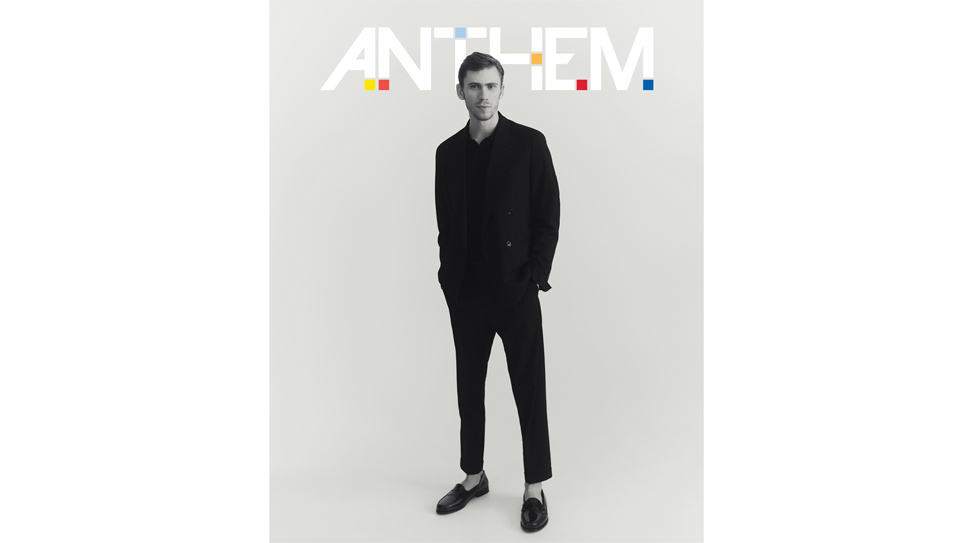
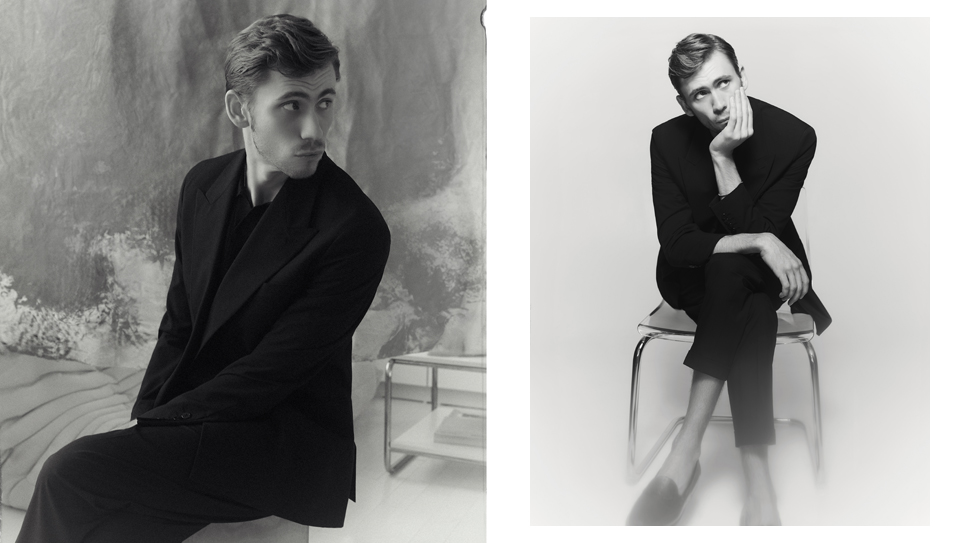
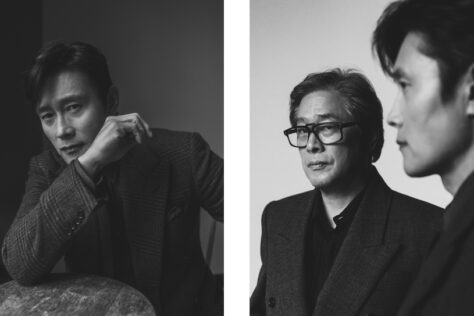 Endangered Species
Endangered Species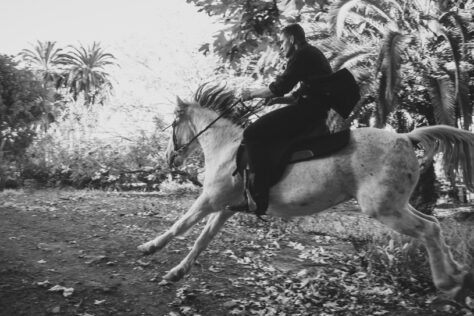 Running with the Horses
Running with the Horses
No Comments